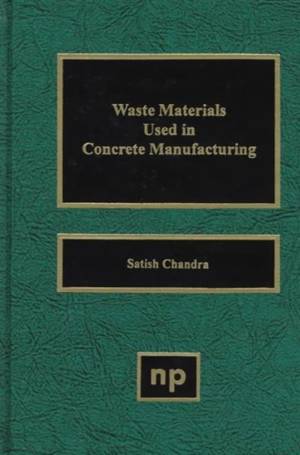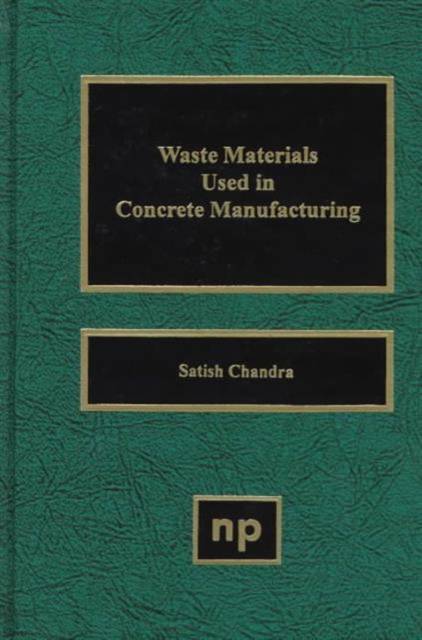
- Afhalen na 1 uur in een winkel met voorraad
- Gratis thuislevering in België vanaf € 30
- Ruim aanbod met 7 miljoen producten
- Afhalen na 1 uur in een winkel met voorraad
- Gratis thuislevering in België vanaf € 30
- Ruim aanbod met 7 miljoen producten
Zoeken
Omschrijving
The environmental aspects involved in the production and use of cement, concrete and other building materials are of growing importance. CO2 emissions are 0.8-1.3 ton/ton of cement production in dry process. SO2 emission is also very high, but is dependent upon the type of fuel used. Energy consumption is also very high at 100-150 KWT/ton of cement produced. It is costly to erect new cement plants. Substitution of waste materials will conserve dwindling resources, and will avoid the environmental and ecological damages caused by quarrying and exploitation of the raw materials for making cement. To some extent, it will help to solve the problem otherwise encountered in disposing of the wastes. Partial replacement of clinker or portland cement by slag, fly ash, silica fume and natural rock minerals illustrates these aspects. Partial replacement by natural materials that require little or no processing, such as pozzolans, calcined clays, etc., saves energy and decreases emission of gases. The output of waste materials suitable as cement replacement (slags, fly ashes, silica fumes, rice husk ash, etc.) is more than double that of cement production.These waste materials can partly be used, or processed, to produce materials suitable as aggregates or fillers in concrete. These can also be used as clinker raw materials, or processed into cementing systems. New grinding and mixing technology will make the use of these secondary materials simpler. Developments in chemical admixtures: superplasticizers, air entraining agents, etc., help in controlling production techniques and, in achieving the desired properties in concrete.Use of waste products is not only a partial solution to environmental and ecological problems; it significantly improves the microstructure, and consequently the durability properties of concrete, which are difficult to achieve by the use of pure portland cement. The aim is not only to make the cements and concrete less expensive, but to provide a blend of tailored properties of waste materials and portland cements suitable for specified purpose. This requires a better understanding of chemistry, and materials science.There is an increasing demand for better understanding of material properties, as well as better control of the microstructure developing in the construction material, to increase durability. The combination of different binders and modifiers to produce cheaper and more durable building materials will solve to some extent the ecological and environmental problems.
Specificaties
Betrokkenen
- Auteur(s):
- Uitgeverij:
Inhoud
- Aantal bladzijden:
- 672
- Taal:
- Engels
- Reeks:
Eigenschappen
- Productcode (EAN):
- 9780815513933
- Verschijningsdatum:
- 31/12/1996
- Uitvoering:
- Hardcover
- Formaat:
- Genaaid
- Afmetingen:
- 165 mm x 244 mm
- Gewicht:
- 1347 g

Alleen bij Standaard Boekhandel
+ 349 punten op je klantenkaart van Standaard Boekhandel
Beoordelingen
We publiceren alleen reviews die voldoen aan de voorwaarden voor reviews. Bekijk onze voorwaarden voor reviews.











